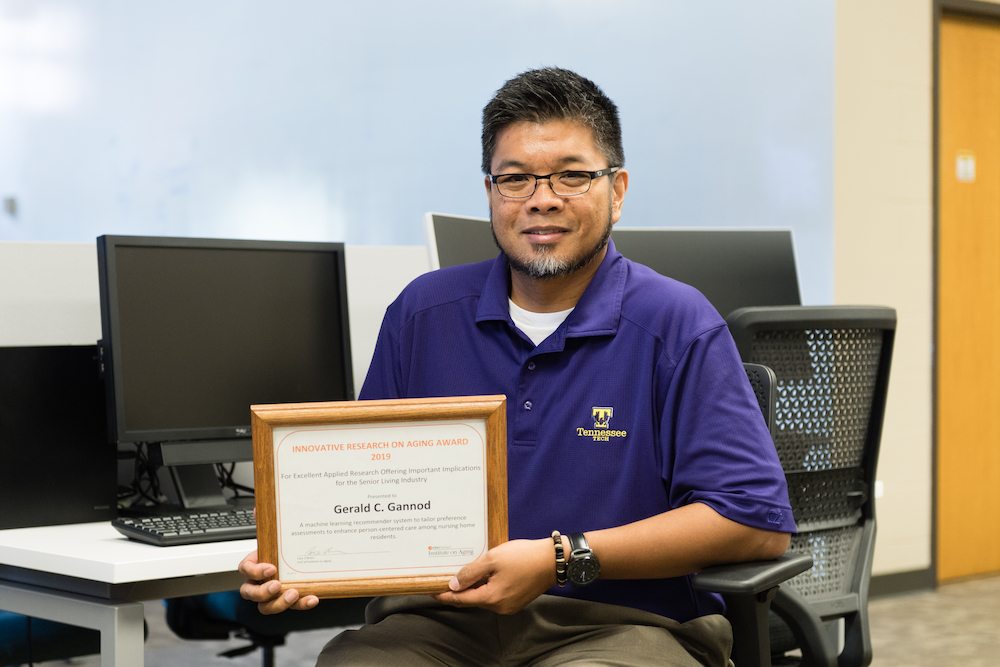News
Software development earns Innovative Research on Aging Silver Award
 America’s population is aging at a rapid pace and technology can make caregiving more
efficient.
America’s population is aging at a rapid pace and technology can make caregiving more
efficient.
The multi-university development between Tennessee Tech, Miami University in Oxford, Ohio, and Penn State University was named one of three recipients of the Innovative Research on Aging Silver Award.
“It’s part of a larger effort to identify and meet preferences for residents in nursing homes,” said Jerry Gannod, chair of Tech’s computer science and the project’s lead investigator, along with Katy Abbott and Jane Straker of Miami University and Kimberly Van Haitsma of Penn State University. “Just because we’ve aged and moved into a nursing home, doesn’t mean our preferences haven’t changed.”
This project focuses on person-centered care in skilled nursing communities. Specifically, it seeks to improve upon the Preferences for Everyday Living Inventory (PELI-NH), which is commonly used in nursing homes.
“There are 72 questions in the PELI-NH survey,” Gannod said. “This software would reduce that to 16 questions that direct care workers can ask of residents while the software helps identify preferences without having to ask the other questions.”
It’s similar to what Amazon or Netflix does with recommendations using machine learning technologies, such as “If you enjoyed X, you might also enjoy Y.”
The development team found that the recommender system was extremely accurate at predicting important preferences of residents with an 80.2 percent recall performance – the ratio of correctly predicted preferences compared with all predicted preferences and non-preferences – and a 79.2 precision rate in correctly predicted rules with respect to the rules predicted to be true.
“Because the recommender uses data from other residents to predict preferences, the algorithm will become more accurate as larger datasets become available,” the developer team concluded. “Ultimately, the use of machine learning could assist NH providers in tailoring their preferences assessments to maximize staff time while minimizing the burden of asking a resident dozens of questions.”
Tennessee Tech computer science student Nathan Martindale did a lot of the software development.
“We met with other investigators weekly,” Gannod said. “There have been a number of graduate students work on this as well. It’s been a great team.”
The project has been in development since a 2016 grant from the Ohio Department of Medicare was awarded and was published in the May 2018 edition of The Gerontologist.
The development team was awarded $1,000 from the Institute on Aging. The study, along with seven other studies, is featured in a brief report that can be seen here: https://www.matherlifewaysinstituteonaging.com/researchers/innovative-research-award/.
Gannod is trying to identify partner nursing homes with this software and is also working with a company out of Washington, DC, to license the software.
“The gerontology field has not seen anything like this,” Gannod said. “It’s efficient, personalized and can improve the quality of care in nursing homes.”

